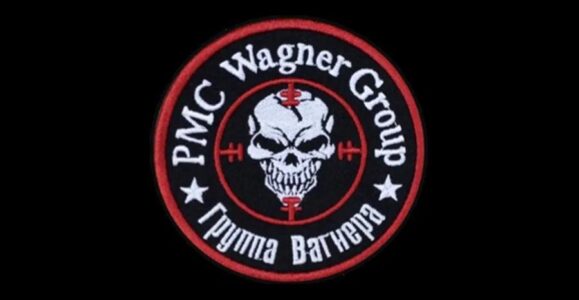
Wagner Group must be designated as foreign terrorist organization
On Jan. 26, the State Department announced further sanctions against the Wagner Group and a number of Wagner-related entities.
The Treasury Department designated Wagner as a transnational criminal organization for an ongoing pattern of serious criminal activity, including mass executions, rape, child abductions, and physical abuse in the Central African Republic, or CAR, and Mali.
It also sanctioned Wagner for the violent targeting of women and children, abductions, forced displacements, and attacks on schools, hospitals and religious sites in CAR. In December, Secretary of State Antony Blinken designated Wagner as an Entity of Particular Concern under the International Religious Freedom Act for its indiscriminate targeting and killing of members of minority religious groups in CAR, and the Commerce Department restricted Wagner Group’s access to certain foreign-produced items (primarily but not exclusively weapons and munitions) that use U.S. technology. Wagner was first sanctioned by the Treasury Department in 2017 for its involvement in the Russia-Ukraine conflict.
These sanctions are a step forward in dealing with the international carnage that Wagner has wrought since its creation in 2014. They have serious limitations, however, because all require a nexus with the United States. While they limit financial transactions with U.S. persons and entities, and U.S. citizens are subject to criminal prosecution for violations of these sanctions, they do not touch upon Wagner’s interaction with the rest of the world.
If the Biden administration wants to impose maximum pressure on Wagner, it will designate it as a foreign terrorist organization, or FTO.
This would bring into full force America’s material support to terrorism statutes and would put anyone, anywhere in the world, who provides support to Wagner at the same legal risk as someone who provides material support to the Islamic State or al Qaeda. Instead, Wagner has been subject to the same sanctions under a variety of names: as an arm of the Russian military; as a suppressor of religious freedom; and now as a transnational criminal organization. None of these invokes the material support to terrorism statutes, and therefore none significantly hinder Wagner’s foreign operations.
Wagner is a terrorist problem, not a criminal problem — a distinction with a difference.
Its use of terror against civilians in Syria and Africa is to further the Kremlin’s foreign policy goals as well as for its own material gain. Wagner has secured natural gas resources in Syria and mineral resources in Africa, which helps the Kremlin avoid international sanctions and finance its war in Ukraine. It props up dictators while its terror tactics destabilize large swaths of Africa’s Sahel region by increasing support for local insurgent groups. Sudan’s 2021 military coup, which overthrew a transitional civilian government, was instigated in part to allow Wagner’s gold smuggling to Russia to continue.
These are the acts of a terrorist organization, not a criminal gang. One of the lessons of 9/11 is that terrorism must be treated as the global threat it is, not merely as a law enforcement problem. Hezbollah counterfeits U.S. currency and al Qaeda smuggles drugs with the Taliban, but they are designated as FTOs because their terror supports political goals that threaten the security of the United States, its allies and its partners.
For the secretary of state to designate an entity as an FTO, it must be foreign and engage in terrorism, and the terrorism must threaten the security of the United States or its nationals. Wagner meets these criteria; since it emulates the Islamic State in its actions, it should be treated in the same manner.
The administration may believe that an FTO designation would force it to list Russia as a state sponsor of terrorism, or SST, since Wagner is its agent. However, nothing in U.S. law would compel the secretary to make such a designation. We have argued elsewhere that declaring Russia an SST would be counterproductive by severing lines of communication necessary to end the war in Ukraine. The use of material support to terrorism statutes to destroy Wagner’s utility to the Kremlin and end its gold smuggling operations would pressure the Kremlin by removing a valuable asset.
This approach is gathering support in Congress. Earlier this year, the Holding Accountable Russian Mercenaries (HARM) Act was introduced in both the House and Senate with bipartisan support. This act would direct the secretary of state to designate Wagner and its affiliates as an FTO, bringing the full power of U.S. law into play against Wagner on a global basis. But we need not wait for the bill’s passage to take action.
We encourage the secretary to act under the authorities that already exist so that U.S. sanctions against Wagner will include the most powerful legal tools that allow us to sanction Wagner and its supporters as we have sanctioned al Qaeda.
Source: washingtontimes





